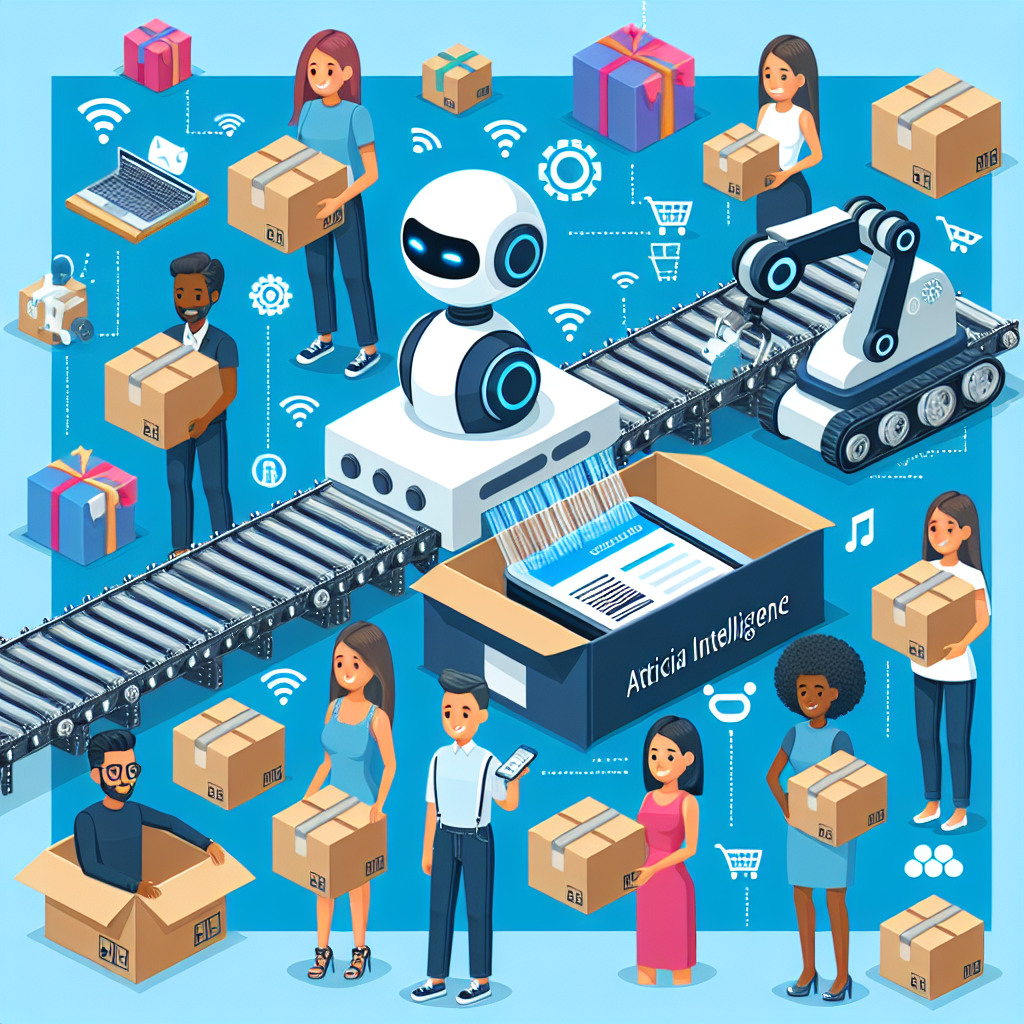How AI is Revolutionizing E-commerce: Enhancing Customer Experience and Logistics Operations
The AI Revolution in E-commerce: Transforming Online Shopping
In today’s rapidly evolving digital marketplace, e-commerce platforms are increasingly turning to artificial intelligence (AI) to revolutionize both customer experience and logistics operations. This technological transformation is reshaping how online retailers interact with customers and manage their supply chains, creating more efficient and personalized shopping experiences than ever before.
AI-Powered Personalization: Creating Tailored Shopping Experiences
E-commerce platforms are leveraging AI to deliver highly personalized shopping experiences through:
- Smart Product Recommendations: AI algorithms analyze browsing history, purchase patterns, and customer preferences to suggest relevant products
- Dynamic Pricing: Real-time price optimization based on market demand, competitor pricing, and customer behavior
- Personalized Search Results: AI-powered search engines that understand context and user intent
- Custom Content Delivery: Tailored marketing messages and promotions based on individual customer profiles
Enhancing Customer Service with AI
Artificial intelligence is revolutionizing customer service in e-commerce through:
- AI Chatbots: 24/7 customer support handling routine queries and providing instant responses
- Virtual Shopping Assistants: AI-powered helpers that guide customers through their shopping journey
- Voice Commerce: Natural language processing enabling voice-based shopping experiences
- Sentiment Analysis: Real-time monitoring of customer feedback and social media mentions
Optimizing Logistics and Supply Chain Management
AI is transforming e-commerce logistics through:
- Predictive Inventory Management: AI algorithms forecast demand and optimize stock levels
- Intelligent Warehousing: Automated storage and retrieval systems powered by AI
- Route Optimization: AI-driven delivery route planning for improved efficiency
- Last-Mile Delivery: Smart scheduling and tracking systems for better delivery experiences
The Impact of AI on Order Fulfillment
E-commerce platforms are using AI to streamline order fulfillment through:
- Automated Order Processing: AI systems that handle order verification and processing
- Smart Packaging Solutions: AI-optimized packaging recommendations for different products
- Quality Control: AI-powered inspection systems for order accuracy
- Returns Management: Automated systems for processing and analyzing returns
Data Analytics and Business Intelligence
AI is enabling better business decisions through:
- Predictive Analytics: Forecasting trends and customer behavior
- Market Intelligence: Real-time analysis of market conditions and competitor activities
- Customer Insights: Deep learning models for understanding customer preferences
- Performance Metrics: AI-driven analysis of key performance indicators
Security and Fraud Prevention
AI is enhancing e-commerce security through:
- Fraud Detection: Machine learning algorithms identifying suspicious transactions
- Authentication Systems: AI-powered identity verification methods
- Risk Assessment: Predictive modeling for security risk evaluation
- Payment Protection: Advanced security measures for online transactions
Future Trends and Innovations
The future of AI in e-commerce holds exciting possibilities:
- Augmented Reality Shopping: AI-powered virtual try-ons and product visualization
- Autonomous Delivery: Self-driving vehicles and delivery drones
- Predictive Maintenance: AI systems for preventing logistics disruptions
- Hyper-Personalization: Even more sophisticated customer experience customization
Challenges and Considerations
While implementing AI in e-commerce, platforms must address:
- Data Privacy: Ensuring customer information protection
- Integration Complexity: Seamless incorporation of AI systems
- Cost Management: Balancing investment with returns
- Ethical Considerations: Responsible AI implementation
Best Practices for AI Implementation
To successfully leverage AI, e-commerce platforms should:
- Start Small: Begin with pilot projects and scale gradually
- Focus on Value: Prioritize solutions that deliver clear benefits
- Maintain Human Touch: Balance automation with personal interaction
- Continuous Learning: Regular system updates and improvements
Measuring AI Success in E-commerce
Key metrics for evaluating AI implementation include:
- Customer Satisfaction Scores: Improved service quality measurements
- Operational Efficiency: Reduced costs and processing times
- Sales Performance: Increased conversion rates and average order value
- Customer Retention: Higher loyalty and repeat purchase rates
Conclusion
As e-commerce continues to evolve, AI remains a crucial driver of innovation and improvement. By leveraging AI technologies effectively, platforms can enhance customer experiences, streamline operations, and maintain competitive advantages in the digital marketplace. The key to success lies in thoughtful implementation, continuous optimization, and a steadfast focus on delivering value to customers while improving operational efficiency.

